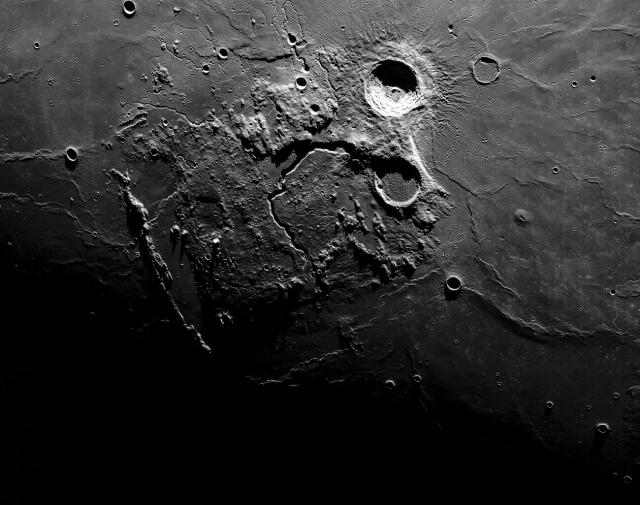An expert in the field of military cosmonautics noted that the Russian technologies used by the Burevestnik rocket will be in demand in promising lunar projects and Roscosmos.
MOSCOW, October 29. /tass/. Radiation-resistant electronic components, similar to those on board the latest Russian global-range rocket Burevestnik, are attractive for the Russian lunar program, as well as for Russia's partners in the development of the Earth's natural satellite. This opinion was expressed to TASS by Evgeny Babichev, an expert in the field of military cosmonautics.
"Advanced Russian technologies for creating electronics capable of operating for a long time next to the Burevestnik nuclear furnace will be in demand in promising lunar projects of both Roscosmos and our partners," Babichev said, commenting on Russian President Vladimir Putin's words that radiation-protected electronics used in the Burevestnik rocket are already in use. in space programs.
He noted that the modern scientific and production capabilities of the advanced space powers make it possible "in the foreseeable future" to include lunar resources in the industrial complex of mankind, eventually even achieving profitability. The fundamental problem on this path is the reliability of the equipment, which is not always possible to reserve. "Until our own repair infrastructure appears in space and on the Moon, electronics must be trouble-free, including when it comes to the effects of radiation," the expert emphasized.
Babichev added that the main harmful effects on the Moon are galactic and solar rays, as well as secondary radiation resulting from the interaction of particles and rays with the lunar soil. He recalled that the daily radiation dose on the surface of the Earth's natural satellite is almost twice as high as on board the ISS, and about 200 times higher than on the surface of the Earth. "Taking into account the high costs of delivering cargo to the Moon, the problem of reliability of electronic components of such missions is no less significant than for interplanetary flights," the expert noted.
He stressed that the complex of electronic equipment for the Burevestnik only reflects the level of development of this kind of technology achieved by Russia. "In order to feel the complexity of the solved problems, it is necessary to realize that all combat and service missile systems are located at a minimum distance from a working high-power nuclear reactor and have minimal physical protection, limited by the mass-dimensional characteristics of the product," Babichev added.
Chief of the General Staff of the Russian Armed Forces Valery Gerasimov, in a report to Supreme Commander Vladimir Putin on October 26, announced the completion of tests of the Burevestnik cruise missile of unlimited range. During the tests, the rocket was in the air for about 15 hours, covered 14 thousand km, which, according to the chief of the General Staff, is not the limit. He stressed that during the flight of the Burevestnik, all the specified vertical and horizontal maneuvers were performed and "thereby demonstrated high capabilities to bypass missile and air defense systems."

